第10章 CHAPTER 1(10)
Manufacturers have stood in the pillory for presuming to carry on their businessby new and improved methods. In modern Europe, and most in those parts ofit which have participated most largely in all other modern improvements,diametrically opposite doctrines now prevail. Law and government do not undertaketo prescribe by whom any social or industrial operation shall or shall notbe conducted, or what modes of conducting them shall be lawful. These thingsare left to the unfettered choice of individuals. Even the laws which requiredthat workmen should serve an apprenticeship, have in this country been repealed: there being ample assurance that in all cases in which an apprenticeshipis necessary, its necessity will suffice to enforce it. The old theory was,that the least possible should be left to the choice of the individual agent;that all he had to do should, as far as practicable, be laid down for himby superior wisdom. Left to himself he was sure to go wrong. The modern conviction,the fruit of a thousand years of experience, is, that things in which theindividual is the person directly interested, never go right but as theyare left to his own discretion; and that any regulation of them by authority,except to protect the rights of others, is sure to be mischievous. This conclusionslowly arrived at, and not adopted until almost every possible applicationof the contrary theory had been made with disastrous result, now (in theindustrial department) prevails universally in the most advanced countries,almost universally in all that have pretensions to any sort of advancement.
It is not that all processes are supposed to be equally good, or all personsto be equally qualified for everything; but that freedom of individual choiceis now known to be the only thing which procures the adoption of the bestprocesses, and throws each operation into the hands of those who are bestqualified for it. Nobody thinks it necessary to make a law that only a strong-armedman shall be a blacksmith. Freedom and competition suffice to make blacksmithsstrong-armed men, because the weak armed can earn more by engaging in occupationsfor which they are more fit. In consonance with this doctrine, it is feltto be an overstepping of the proper bounds of authority to fix beforehand,on some general presumption, that certain persons are not fit to do certainthings. It is now thoroughly known and admitted that if some such presumptionsexist, no such presumption is infallible. Even if it be well grounded ina majority of cases, which it is very likely not to be, there will be a minorityof exceptional cases in which it does not hold: and in those it is both aninjustice to the individuals, and a detriment to society, to place barriersin the way of their using their faculties for their own benefit and for thatof others. In the cases, on the other hand, in which the unfitness is real,the ordinary motives of human conduct will on the whole suffice to preventthe incompetent person from making, or from persisting in, the attempt.
If this general principle of social and economical science is not true;if individuals, with such help as they can derive from the opinion of thosewho know them, are not better judges than the law and the government, oftheir own capacities and vocation; the world cannot too soon abandon thisprinciple, and return to the old system of regulations and disabilities.
But if the principle is true, we ought to act as if we believed it, and notto ordain that to be born a girl instead of a boy, any more than to be bornblack instead of white, or a commoner instead of a nobleman, shall decidethe person's position through all life -- shall interdict people from allthe more elevated social positions, and from all, except a few, respectableoccupations. Even were we to admit the utmost that is ever pretended a tothe superior fitness of men for all the functions now reserve to them, thesame argument applies which forbids a legal qualification for Members ofParliament. If only once in a dozen years the conditions of eligibility excludea fit person, there is a real loss, while the exclusion of thousands of unfitpersons is no gain; for if the constitution of the electoral body disposesthem to choose unfit persons, there are always plenty of such persons tochoose from. In all things of any difficulty and importance, those who cando them well are fewer than the need, even with the most unrestricted latitudeof choice: and any limitation of the field of selection deprives societyof some chances of being served by the competent, without ever saving itfrom the incompetent.